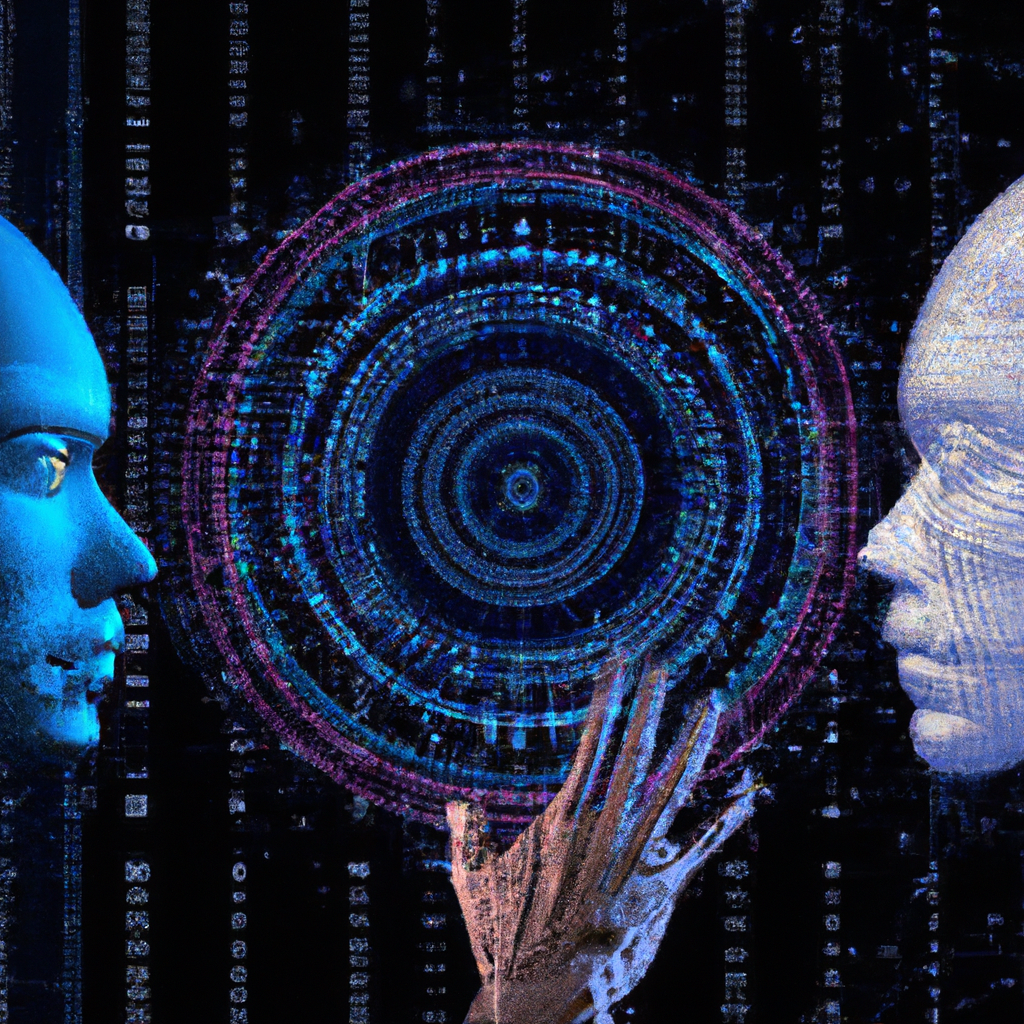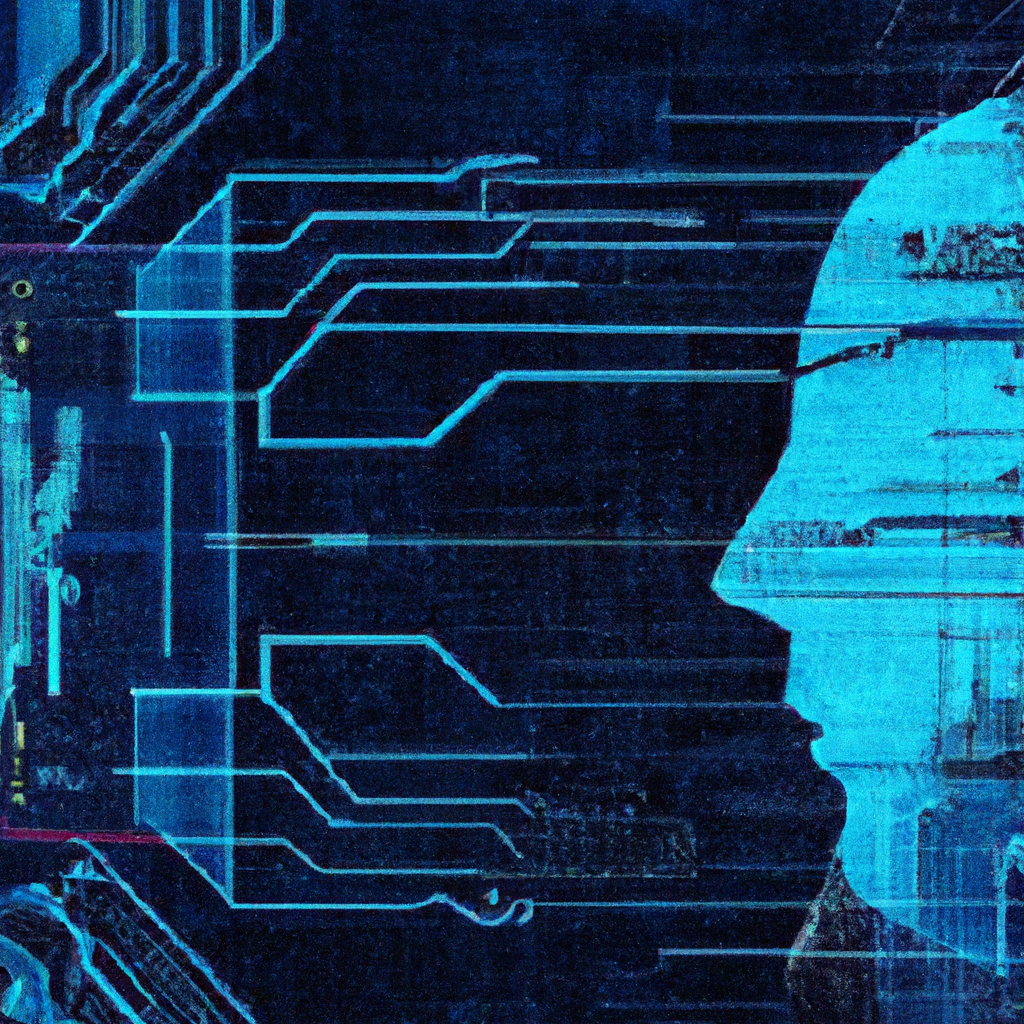What Are The Ethical Considerations In AI Development? In the rapidly advancing field of artificial intelligence (AI) development, it is crucial to address the ethical considerations that accompany this innovative technology. As AI continues to become more integrated into various aspects of our lives, it is increasingly important to understand and navigate the potential ethical challenges that arise. This article aims to explore and shed light on the complex realm of AI ethics, examining key considerations such as privacy, bias, accountability, and the potential impact on human values. By delving into these ethical considerations, we can pave the way for responsible and sustainable AI development.

Introduction
As artificial intelligence (AI) continues to advance and permeate various aspects of our lives, it is crucial to discuss the ethical considerations surrounding its development. AI has the potential to revolutionize industries and improve efficiency, but it also raises concerns regarding data privacy, transparency and explainability, accountability and responsibility, bias and fairness, impact on jobs and the economy, human autonomy and control, as well as its social and global impact. This article will explore these ethical considerations in detail and shed light on the challenges and opportunities AI presents.
Data Privacy
Collection and Storage of Personal Data
One of the primary ethical concerns in AI development is the collection and storage of personal data. AI systems heavily rely on vast amounts of data to train and improve their algorithms. However, the collection of personal data raises concerns about privacy infringement and potential misuse. It is imperative to implement robust measures and strict regulations to ensure data protection and respect the rights of individuals.
Data Security and Breaches
In addition to the collection of personal data, ensuring the security of that data is crucial. Data breaches can have severe consequences, leading to identity theft and other privacy breaches. Developers must prioritize data security by implementing encryption, access controls, and regular security audits to prevent unauthorized access and protect sensitive information from falling into the wrong hands.
Algorithmic Bias
AI systems are trained on historical data, which means they inherit the biases and prejudices present in that data. This can result in algorithmic bias, perpetuating discrimination and unfairness. It is essential for developers to address algorithmic bias by thoroughly evaluating and testing their models for bias and taking steps to mitigate its impact. By ensuring diverse and representative datasets, AI algorithms can strive to be fair and impartial.
Transparency and Explainability
Black Box Problem
The lack of transparency and explainability in AI algorithms is a significant ethical concern. Many AI systems operate as “black boxes,” making it challenging to understand how decisions are made. This opacity raises concerns about accountability and the potential for biased or discriminatory outcomes. Developers must strive to enhance the transparency of AI systems, allowing users to understand the reasoning behind decisions and addressing the “black box problem.”
Bias and Discrimination
Alongside the lack of transparency, bias and discrimination are significant concerns in AI development. Biased data inputs can lead to biased outcomes, perpetuating existing social biases and discrimination. It is crucial for developers to actively identify and mitigate bias in AI systems, ensuring fairness and equal treatment for all individuals, regardless of race, gender, or any other protected characteristic.
Explainable AI
To address the lack of transparency and combat bias, explainable AI is gaining importance. Explainable AI aims to provide clear and understandable explanations for the decisions made by AI systems. By enabling users to understand the factors and reasoning behind decisions, explainable AI fosters trust and accountability. Incorporating explainability into AI algorithms should be a priority for developers to ensure ethical decision-making processes.

Accountability and Responsibility
Liability for AI Decisions
As AI systems become more autonomous and make decisions with significant consequences, the issue of liability arises. Who is responsible for the decisions AI systems make? Current legal frameworks are not well-equipped to handle these questions. It is crucial to establish clear guidelines and frameworks that allocate accountability and liability appropriately, striking a balance between protecting individuals from harm and encouraging innovation.
Autonomous Weapons
Autonomous weapons pose a unique ethical consideration in AI development. The development and deployment of lethal autonomous systems raise concerns about the potential for misuse and the erosion of human control during warfare. International agreements and regulations must be established to prevent the development of autonomous weapons that do not require human oversight. Ethical considerations should prioritize the preservation of human life and minimize harm.
Ethical Frameworks
To navigate the ethical challenges in AI development, the establishment of ethical frameworks is necessary. This involves integrating ethical principles and guidelines into the design and development of AI systems. By adopting and adhering to ethical frameworks, developers can ensure that AI systems operate responsibly and uphold human values, avoiding unintended negative consequences.
Bias and Fairness
Discrimination in Decision Making
One significant ethical concern in AI development is the potential for discrimination in decision-making processes. AI systems have the power to make critical decisions that impact individuals’ lives, such as hiring, loan approval, and criminal justice. If AI algorithms are biased or discriminatory, it can perpetuate existing inequalities and social injustices. Developers must actively work to address and mitigate bias to ensure fairness and equal treatment for all.
Data Bias and Representational Inequality
Another aspect of bias and fairness in AI development is the issue of data bias and representational inequality. AI relies on vast datasets, but if those datasets contain biased or unrepresentative data, the resulting AI systems will be flawed. Developers must strive to collect diverse and inclusive datasets that adequately represent the demographics and social complexities of the population to mitigate bias and ensure fair outcomes for all.
Impact on Jobs and Economy
Automation and Unemployment
As AI advances and automation becomes more prevalent, concerns arise regarding the impact on jobs and employment. While AI can lead to increased productivity and efficiency, it also has the potential to replace human workers in various industries. This displacement can lead to unemployment and economic disparities. Striking a balance between embracing technological advancements and ensuring a just transition for workers is crucial to address ethical concerns related to job losses.
Job Replacement and Reskilling
To mitigate the negative impact on jobs, reskilling and upskilling workers are essential considerations in AI development. By investing in programs to retrain workers for new roles and providing ongoing educational opportunities, individuals can adapt to the changing job market and remain relevant. Ensuring equitable access to reskilling programs will promote a just transition and minimize the negative consequences of automation.
Economic Disruption
AI has the potential to disrupt industries and economies significantly. While it can lead to economic growth and innovation, it can also exacerbate existing inequalities. Large corporations and tech giants may benefit disproportionately, widening the wealth gap. Ethical considerations should prioritize equitable access to AI technologies and safeguard against monopolistic practices that stifle competition and concentrate power in a few hands.
Human Autonomy and Control
AI Assisted Decision Making
AI systems are often designed to assist humans in decision-making processes. However, as AI becomes more advanced and autonomous, there is a risk of humans relinquishing control and blindly relying on AI recommendations. It is crucial to strike a balance between utilizing AI’s capabilities and maintaining human agency and judgment. Humans should retain the ability to override AI decisions and must always be accountable for the final outcomes.
Loss of Individual Agency
Another ethical concern is the potential loss of individual agency as AI systems become more pervasive. AI can gather extensive amounts of data and predict human behavior, leading to potential manipulation and loss of privacy. Safeguards must be put in place to preserve individual agency and prevent undue influence or coercion. Upholding individual autonomy and ensuring consent is fundamental to ethical AI development.
Surveillance and Manipulation
As AI technologies advance, surveillance capabilities increase, raising concerns about privacy infringements and the potential for manipulation. Mass surveillance and the harvesting of personal data without consent can lead to harmful consequences. Ethical considerations should prioritize protecting individual privacy rights and implementing robust regulations to prevent the misuse of AI technologies for surveillance or coercion.
Social and Global Impact
Distribution of AI Benefits
One ethical consideration in AI development is the equitable distribution of its benefits. AI has the potential to enhance various aspects of society, including healthcare, education, and disaster response. However, if access to AI technologies and their benefits is concentrated in the hands of a few, it can deepen existing socioeconomic inequalities. Ethical considerations should prioritize equal access to AI technologies and address the potential for exacerbating social disparities.
Global Governance and Regulations
Given the global nature of AI, the establishment of global governance and regulations is necessary. AI technologies do not adhere to national borders, and their ethical implications require international cooperation. Collaborative efforts to establish ethical frameworks, standards, and regulations will ensure responsible development, deployment, and use of AI globally. Transparency and inclusivity in policymaking should be prioritized to avoid biases or imbalances in the decision-making process.
AI in Warfare
The use of AI in warfare presents complex ethical dilemmas. Autonomous weapons that can make lethal decisions independent of human control raise concerns about accountability and moral responsibility. The development of lethal autonomous systems must be carefully regulated to prevent the erosion of human values and to maintain human oversight in decision-making processes. Ethics in AI development should prioritize minimizing harm and upholding ethical principles in military applications.
Lethal Autonomous Systems
Ethics of Developing Autonomous Weapons
Developing and deploying lethal autonomous systems raises ethical concerns that go beyond traditional warfare. The ability of AI to make life-or-death decisions without human intervention challenges our moral compass. International agreements and ethical considerations must guide the development of autonomous weapons, ensuring that human life remains the priority and that ethical values are upheld in any military application.
Moral Responsibility and Accountability
The ethical considerations in the development of lethal autonomous systems also encompass moral responsibility and accountability. When AI systems make autonomous decisions that result in harm, who should be held responsible? The lack of human intent complicates the assignment of responsibility and raises questions about culpability. Developers, policymakers, and society must collectively grapple with these questions to ensure that moral responsibility is appropriately allocated.
Conclusion
As AI development continues to progress, ethical considerations must remain at the forefront. Addressing data privacy, transparency and explainability, accountability and responsibility, bias and fairness, impact on jobs and the economy, human autonomy and control, social and global impact, and the development of lethal autonomous systems requires a multi-faceted and collaborative approach. By consciously addressing these ethical considerations, AI can be harnessed for the betterment of society while avoiding unintended negative consequences. It is the responsibility of developers, policymakers, and society as a whole to ensure that AI development remains ethical, responsible, and aligned with human values.
